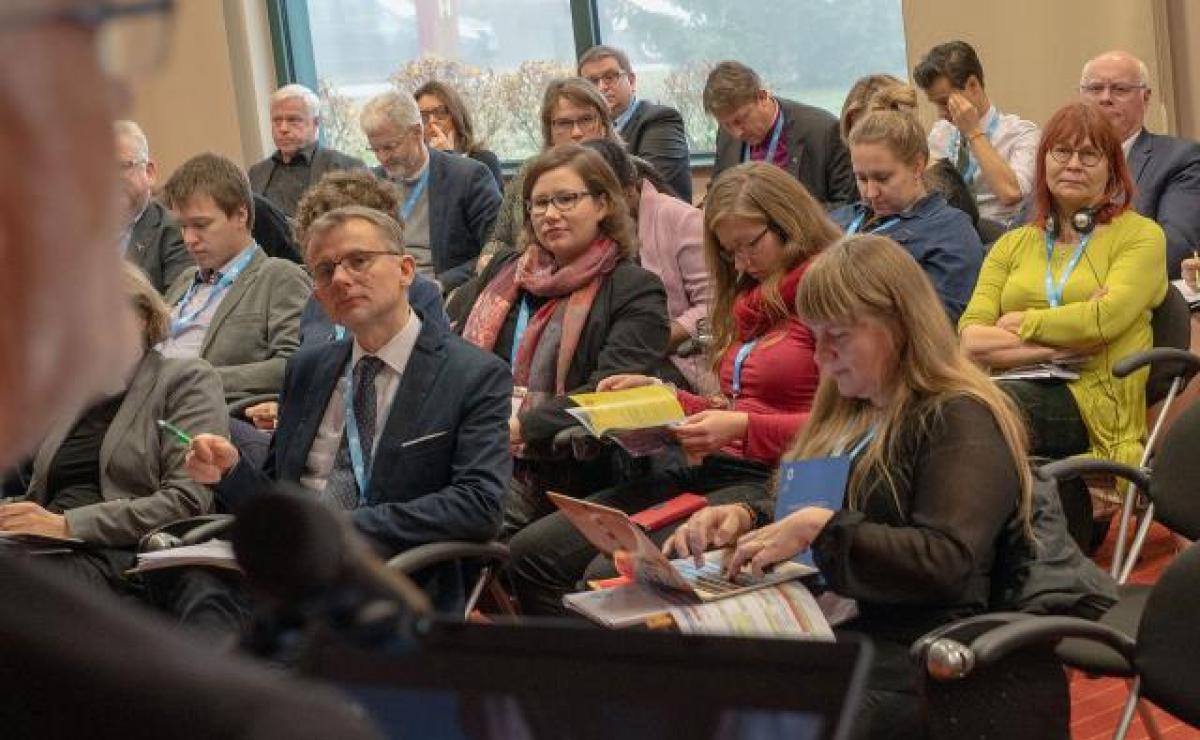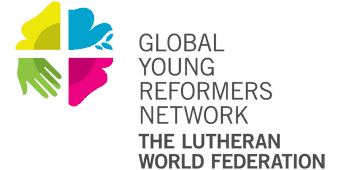European churches asked to counter populism by expressing God’s love

LWF regional meeting discusses migrants, secularization and nationalism
(LWI) - Representatives of the three European regions of The Lutheran World Federation (LWF) meeting in Moravske Toplice, Slovenia, said the growing populism and climate of fear in Europe should challenge churches to demonstrate God’s love.
The 5-7 November European Regions Meeting (ERM) discussed the new LWF Strategy 2019-2024, “With passion for the church and for the world,” which focuses on supporting churches’ presence and vibrant witness in the world; and promoting human dignity, justice, and peace. Delegates also reflected on its implementation both in the global communion and the Communion Office.
The 54 delegates, who included nine youth, emphasized the importance of communion building and Lutheran identity and theology while addressing climate justice, refugees and migrants, secularization and nationalism.
“Your presence here, representing your churches, is a sign of openness, that the future of the church, the Lutheran communion and the world matters to you,” said Rev. Dr Ireneusz Lukas, area secretary for Europe and interim director of the Department for Mission and Development.
“We want to continue our journey together, witnessing together and publicly and vibrantly expressing God's love, which is so much needed in our world today,” Lukas added.
The new strategy takes into account the LWF’s Twelfth Assembly deliberations in May 2017 and was approved by the Council in June this year.
The ERM brings together representatives of LWF member churches in Europe’s three regions (Central Eastern Europe, Central Western Europe and the Nordic Countries), Council members, church leaders, ecumenical officers, Global Young Reformers and Women in Church and Society coordinators.
A sign of hope
The Evangelical Church of the Augsburg Confession in Slovenia, a church with a long history of Reformation, hosted the meeting. In his opening sermon, Bishop Geza Filo of the 16,000- member church called the gathering a sign of hope.
“Lutherans around the world are called upon to understand Luther’s boundless trust in God and his plans with us as a sign of the big community that we belong to and that we are experiencing here today,” he said.
“This, dear sisters and brothers in Christ, is a sign of hope and we shall carry it into the world: hope in the unlimited word of God, in love that is gifted and that remains fervent, serving, respectful and questioning.”
Slovenian President Borut Pahor attended a reception following the worship service.
Lutheran identity
Participants in the ERM listened to a contribution of the Nordic churches on “the situation of churches in Europe,” which offered a model and methodology to measure and approach secularization on the continent.
Young delegates welcomed the key priority of intergenerational engagement toward revival of churches as well as meaningful and reliable youth participation.
Participants also discussed Lutheran identity in light of the LWF study document, “The Church in the Public Space.” They urged the LWF to continue its ecumenical and interfaith dialogues.
